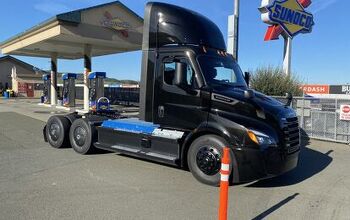Consumer Reports: These Automakers Create The Most Comfortable Cars
The automotive industry places a high emphasis on the comfort of its vehicles. Consumer Reports unveils the most and least satisfying cars in terms of comfort. This includes aspects such as seat comfort, the quietness of the cabin, and the smoothness of the ride. These features play a crucial role in enhancing the driving and passenger experience.
Leading Brands in Automotive Comfort
Some luxury car manufacturers have been meeting, and perhaps, surpassing comfort expectations. Brands like Porsche, Genesis, Audi, BMW, Lexus, and Rivian, known for its electric vehicles, have been recognized for their high comfort levels. These companies have focused on creating a refined driving atmosphere, featuring supportive seats, quiet interiors, and smooth driving experiences.
Challenges in Comfort: A Case Study
On the other hand, Infiniti, although a luxury brand, has been noted as less satisfying in terms of comfort. This shows that Infiniti has been falling short, highlighting the challenges even established brands can face in this domain.
Consistency in Quality Across Vehicle Models
The ability of a brand to maintain high satisfaction scores across its entire vehicle lineup obviously is important when it comes to helping a brand survive -- and thrive.
Evaluating Satisfaction in Different Segments
Vehicle satisfaction extends beyond comfort. Other metrics like driving enjoyment, cabin storage, the user interface, and the cost of ownership are also vital. Brands that score highly in these areas are obviously going to fare better.
The Essence of Owner Satisfaction
Understanding owner satisfaction is key—it reflects whether a vehicle meets or exceeds the owner's expectations. Thus, the highest satisfaction ratings are more about meeting individual owner expectations than about the objective quality of the vehicle.
This article was co-written using AI and was then heavily edited and optimized by our editorial team.
More by TTAC Staff
Latest Car Reviews
Read moreLatest Product Reviews
Read moreRecent Comments
- Jonathan I have respect, generally, for these companies (or at least Toyota and Subaru) and I tend to agree with them. Hybrids seem like a much more logical approach than pure EVs. Some of the advantages of EVs without all the drawbacks. And as someone else stated, Japan, as a culture, hasn't lost their collective minds like the U.S. and Europe have.
- EBFlex Unequivocally yes. EVs are a dead end. Despite governments forcing them on people, the people do not want them.
- Yuda Finally people with actual brain refuse to bow to the EV mandate bs
- FreedMike I'm going to recommend the same car I let my kids drive - an early 2000s LeSabre. Hail to the Church of 3800.
- ToolGuy So OEM ICE powertrain engineers are finally ready to work more than 15 minutes a week? Good. Here are some ideas:a) eliminate the head gasketb) talk to the truck guys about how to build a transmissionc) go ceramic if you mustd) make the engine modular/easily swappable and sell me two or three of them when I buy the vehicle (Subaru, you can throw in one extra one for free, it might be needed)• Honda (not included in this conference because they were sleeping, and dreaming, harnessing the power of dreams) has a straightforward strategy: Just stay asleep for the next 12 years and see how things go.• Toyota is getting super drowsy and sees the Honda playbook as increasingly appealing. I.e., Nap time!• Subaru is stuck and they know it.• When Mazda lapses into talk of rotary engines, there is no plan.


































Comments
Join the conversation